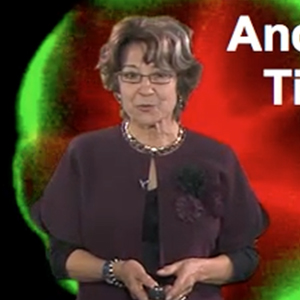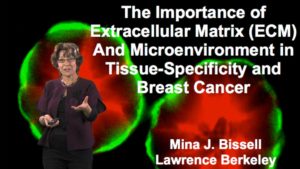Mina Bissell completed her undergraduate degree in chemistry at Radcliffe College and her PhD in bacteriology at Harvard Medical School. She then moved to the University of California, Berkeley for post-doctoral studies. Bissell started her own lab at the Lawrence Berkeley National Laboratory and she has remained there for 30 years. Bissell is now a Distinguished Scientist in the Life Sciences Division.
Bissell’s work focuses on the role of environment in determining cell phenotype. Much of her work has been done on breast tissue where her lab has pioneered studies on the role of the extracellular matrix in determining whether or not cells will develop a malignant or normal phenotype.
Bissell has received numerous awards for her contributions to breast cancer research including the Breast Cancer Research Foundation’s Jill Rose Award and the American Cancer Society’s Medal of Honor. Bissell is also an elected fellow of the National Academy of Sciences and the Royal Society of Chemistry.





